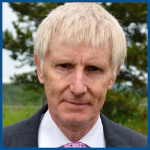Submitted by Susana Camacho on Fri, 13/05/2022 - 12:09
In recognition of exceptional contributions to science and society, Professor Sarah-Jayne Blakemore and Professor Anna Philpott and are among eight Cambridge University researchers elected to the Academy of Medical Sciences, with Professor Graham Burton being elected as a Fellow of the Royal Society.
Sarah-Jayne Blakemore works in the Department of Psychology, studying the adolescent brain and cognition using behavioural and neuroimaging methods, and her work has influenced education, mental health and criminal justice policy.
“Being elected to the fellowship of the Academy of Medical Sciences is an honour and I feel incredibly grateful to the many people with whom I’ve worked over the years, in particular my wonderful research group and many supportive colleagues. I am humbled to be elected in the same year as a number of eminent scientists who work in the area of adolescent mental health, and grateful to the Academy for recognising the importance of this area of research.”
Anna Philpott is Head of the School of Biological Sciences and undertakes research in the Cambridge Stem Cell Institute, studying what controls the balance between proliferation and differentiation during development and cancer. Anna’s work uses a range of models including the Xenopus frog, as well as mice and mammalian cells.
“It is an honour to be elected as a Fellow and I want to thank the Academy of Medical Sciences for this recognition of all the fantastic work of my team over the years. I’m particularly pleased that the Academy recognises the value of a fundamental understanding of developmental biology for addressing a host of critical questions in medical sciences. Frog power!”
Graham Burton is a reproductive biologist in the Department of Physiology, Development and Neuroscience whose research has focused on the early stages of human pregnancy. In particular, he showed how the placenta is established in a protective low-oxygen environment, stimulating its own development through interactions with the uterus. He demonstrated that aberrations in the early stages of placental development can adversely affect the life-long health of mother and offspring.
“I am delighted to receive this recognition for myself and the field of reproductive biology, and thank colleagues and collaborators for their contributions over the years.”
Read more:
Fellows elected to Academy of Medical Sciences and Royal Society in Cambridge.
Full list of this year’s Fellows of Academy of Medical Sciences and Royal Society.




